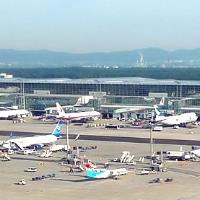(LUXEMBOURG) – European transport ministers gave the go-ahead Tuesday for the EU Commission to start talks on comprehensive air transport agreements with south-east Asian nations, Qatar, the UAE and Turkey.
The agreement with the Association of Southeast Asian Nations (ASEAN) is set to become the first EU bloc-to-bloc aviation agreement.
The United Arab Emirates, Qatar and Turkey are seen as being among the most dynamic and fastest growing aviation markets.
For the Dutch EU presidency, chair of the meeting minister Melanie Schultz van Haegen said that all agreements were directed at allowing market development and growth based on common rules and transparency. “Europe is showing leadership in its external aviation policy with a balanced approach consisting of market opening based on fair and transparent market conditions,” she said.
The goal of comprehensive EU-level aviation agreements is to create new business opportunities, improve market access and ensure fair competition under transparent market conditions. They also aim to increase Europe’s international connectivity and ensure a high quality of service for passengers. Airlines, airports and passengers will benefit from enhanced regulatory cooperation and convergence in areas such as aviation safety, aviation security and economic regulation.
Once concluded, these agreements will replace the bilateral aviation agreements that Member States currently have with these countries.
For the Commission, tasked with carrying out the negotiations on behalf of the EU and its Member States, Transport Commissioner EU Commissioner for Transport Violeta Bulc said: “Once agreed, these agreements will offer new business opportunities to the whole aviation sector, new routes and better fares to passengers, whilst guaranteeing a level playing field to our companies.”
EU-level aviation agreements create new economic opportunities and ensure fair and transparent market conditions based on a clear regulatory framework for all actors. They ensure market access, promote investment opportunities, facilitate air travel and provide a wider choice to consumers. They also aim to ensure high standards of safety, security, air traffic management and infrastructure, as well as in consumer, social, and environmental protection.
Once concluded, it is estimated that the economic benefits f the agreements could be:
- ASEAN: up to 7.9 billion in the first seven years of the agreement (2017-2023) and up to 5,700 new jobs by 2023. Fact sheet
- Turkey: up to 5 billion annually from increased tourism, up to a 50% decrease in ticket prices thanks to the opening of markets, and a total of up to 48,000 new jobs. Fact sheet
- Gulf Cooperation Council States: considered all together, up to 8.4 billion during the first eight years of the agreement (2018-2025) and 8,300 new jobs by 2025. Fact sheet
Transport, Telecommunications and Energy Council, 06-07/06/2016 – main results



